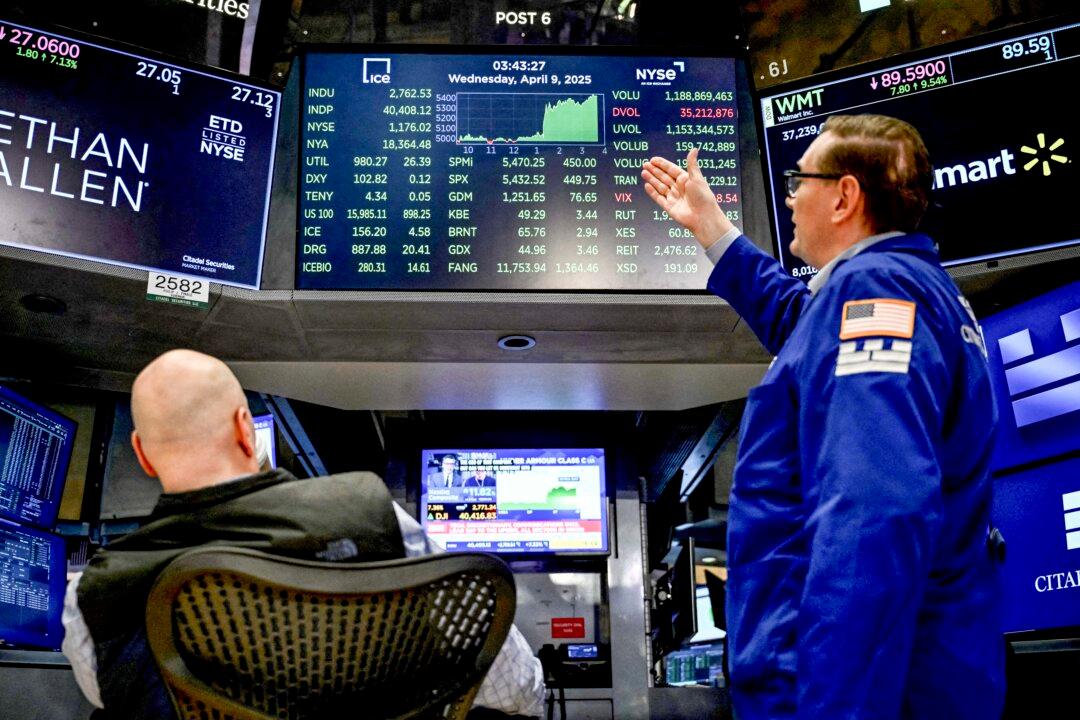Wall Street opened sharply lower on Thursday morning, coming a day after President Donald Trump’s announcement that he would pause reciprocal tariffs for every country except China.
As the markets opened at 9:30 a.m., the Dow Jones Industrial Average was down by roughly 700 points, or more than 2 percent, while the Nasdaq composite shed more than 400 points, or roughly 2 percent. The S&P 500, which had posted its largest single-day gain since 2008 after Trump’s announcement, dropped by more than 2 percentage points.





